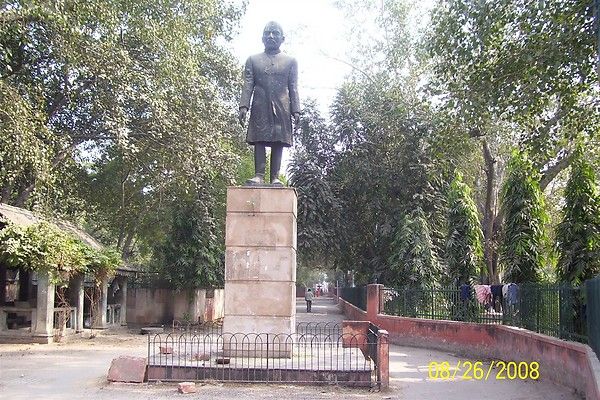Battle Against Ayurveda is a Fight for Our Survival
The Case against Patanjali by Indian Medical Association and the tone of Judiciary is alarming. We need to look into its historical and global context to fully grasp its ramification.

I have grown up in Karol Bagh and going to Ajmal Khan park was my daily routine. During my school time I used to be there at the park at about 4.30 am to exercise in the “Akhada” (or rural type gym) and work with the dumbells etc.
I used to follow it up with long walks where I used to ruminate. Those times have remained with me forever.
Yesterday I happened to go back to the park. This was the park where I first played real and full pitch cricket and also made some friends. I can still remember myself walking in at 4.30 am in the morning and hearing loud laughs – eerie as they sounded at first – which was a form of exercise for many morning people to open up their lungs – its now called Laughter Therapy. It has been a regular fixture in most of the parks in Delhi where I frequented.
The park is named after Hakim Ajmal Khan – who was a renowned freedom fighter and a physician who practiced the indigenous medicine system called Unani – which means Greek. Now, it is my understanding that this school of medicine is probably the oldest Greek remnant from the Army that came along with Alexander. It had a fusion with the Ayurvedic and also the Persian systems and what emerged with the combination of those three was later called “Unani”. Khan’s family established Tibbia College in Delhi, in order to expand the research and practise of Unani. Tibbia College is right next to the park. Here you see the statue of Hakim Ajmal Khan, now not in the best kept state though, unfortunately.
Hakim Ajmal Khan (from Wikipedia)
Hakim Ajmal Khan was born in 1863 in Punjab. His family, a distinguished line of physicians, descended from the army of Babur, the founder of the Mughal Empire in India.
Khan studied the Qur’an and traditional Islamic knowledge, before studying medicine at Siddiqui Dawakhana under Hakim Jameel Siddiqui. After launching himself in practise, Khan was appointed chief physician to the Nawab of Rampur from 1892 to 1902. In Rampur he met Syed Ahmed Khan and was appointed a trustee of the Aligarh college, now the Aligarh Muslim University.
In recognition of his services in this field the Government of India conferred on him, in 1907 the title of Haziq-ul-Mulk. But in 1910, Dr. Khan was organizing Indian physicians in protest of a Government decision to revoke official recognition for the practitioners of Indian systems of medicine, of Unani and Ayurveda.
Every Sunday AM (US Time)/ PM (India time), we send out a weekly detailed newsletter. We also share other insightful notes during the week. Its free. Do sign up and share with friends!